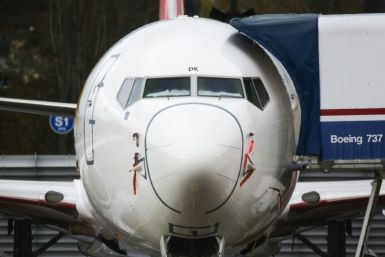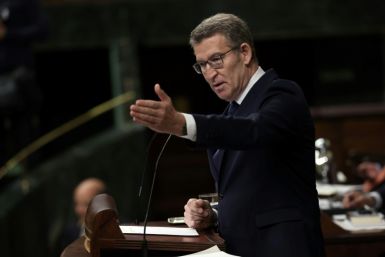Profits: OneSteel, Downer Cut Or Omit Dividends, Sonic Solid
Just a suggestion that OneSteel (ASX:OST), in seeking a new name, might be about to ditch its low profit steel making business, was enough to send the shares up more than 12% by the close yesterday.
The shares hit a high in trading yesterday of 85c, a rise of nearly 14% on the news of the planned name change which dominated reports and investor commentaries about the group's interim results and outlook.
They ignored the 3c unfranked interim dividend (down from 6c for the same period of 2010-11) which told us that despite the weak profit and problems in the local steel industry, the high value of the Australian dollar, and a fall in global iron ore export prices, management remains essentially confident about the outlook.
OneSteel said in briefings that it will cut a further 430 jobs before the end of June, as part of its plan to drive $90 million in annualised savings.
The group has already cut 300 employee jobs, and a further 170 contractor and casual jobs by the end of December.
And the 430 jobs were new reductions in the workforce, and had not previously been announced.
At a media briefing after OneSteel released its half-year results yesterday, CEO Geoff Plummer rejected a suggestion that the name change suggested the company wanted to exit domestic steel production.
But he did tell the media that the present name was limiting, as investors and analysts did not realise the breadth of the company's business.
''Our assets have gone from over 90 per cent in domestic steel to 40 per cent in mining and mining consumables, and by the time we finish it will be half in mining and consumables,'' he said.
The company planned to be an exporter of 11 million tonnes of iron ore, which would make it a "pretty significant iron ore player", he said.
A new name for the company has not been released.
OneSteel said its underlying interim net profit was $78 million for the first half, a bit better than analysts' forecasts which were around $63 million.
The group posted a net loss of $74 million, down from a net profit of $116 million a year ago. The net result was after a $130 million write-down in the value for the LiteSteel business.
Despite that loss, the interim dividend will still be paid even after directors expressed some mixed feelings about the outlook.
"In the near term for our Mining business, we expect demand from China to remain strong, which we anticipate will continue to underpin high prices compared to historical levels," the directors said.
"We remain positive on the outlook for our Mining Consumables business which is underpinned by the strength of the resources sector, including strong mining activity and investment.
"We have good visibility of new mining projects that will increase demand for grinding media. Our businesses are well positioned for this growth.
"In Australian steel, we believe that key construction markets are at their cyclical low points, and that as these markets recover demand will improve.
"Given our reducing cost base and relatively low utilisation levels we are strongly leveraged to the recovery.
"In Recycling, we are confident the outlook for our international and Australian businesses is positive, and expect improvements particularly in Australia."
OneSteel said it expected its steel businesses to be subject to significant volatility based on international steel prices and the exchange rate.
It said volumes should increase by 5% and its manufacturing and distribution business was expected to improve, with the company undertaking a labour and cost reduction program last year following a disappointing performance.
In maintaining dividend, the board is at least doing more for shareholders than the likes of Qantas, Downer EDI, Goodman Fielder and Specialty Fashion Group, all of whom have omitted any shareholder rewards after big profit falls in the December half year.
Revenues rose 15% to $3.8 billion, from $3.3 billion for the first half last year.
And the company posted a $37 million earnings before interest and tax (EBIT) loss, compared to a $203 million profit for the previous first half period.
The company says it on track to boost iron ore exports from six million tonnes for the 2011-12 financial year to 11 million tonnes within a few years.
Thank you, NSW Government?
Train manufacturer and engineering firm Downer EDI (ASX:DOW) says strong gains in its mining division helped it return to profitability in the December half year, and the company expects solid results in 2012.
The recent bailout of the company's Waratah train contract by the NSW government didn't show up in the results, as it happened in January.
Downer said interim net profit in the six month period to December 31, 2011 was $84.9 million, up from a $103.8 million loss in the prior comparable period (because of the cost of write-downs and new money for the Waratah passenger trains project).
Downer EDI said the positive results were driven by Downer Mining, which saw a 79% jump in revenue to $1.1 billion.
It also confirmed its previous full year guidance of underlying earnings of around $340 million and profit of around $180 million.
Downer shares jumped by 22c or 5.9% to $3.94 because of the absence of any more shocks from new costs and problems in the vexed train contract.
The company did not declare an interim dividend.
In the last corresponding period, when it posted a $103.8 million loss, it also omitted a dividend, saying it needed to preserve capital.
Downer has joined the likes of Qantas (ASX:QAN) and Goodman Fielder (ASX:GFF) in omitting dividend. Specialty Fashion group was another stock to omit dividend after a weak result.
Downer's result was the best of the four companies on that list.
But while Downer seems to be back on track, although it wouldn't be a good look resuming dividend payments so soon after the NSW Government bailed out the train deal.
The company's mining division, Downer Mining, performed well in the half with a ramp-up of operations in Christmas Creek, Goonyella and Norwich Park, all in the rich Bowen Basin coal fields in Central Queensland.
Downer Mining currently has $7 billion work in hand, Downer Australia has $5.8 billion, Downer New Zealand $2.6 billion and Downer Rail $4.9 billion.
Downer said on Monday of this week that it had received completion approval from RailCorp for its seventh Waratah Train and the company.
"As a result of the restructure of Reliance Rail (The Waratah train project operator), Downer will transfer the equity accounted Reliance Rail hedge reserve of $72.5 million via the income statement to retained earnings.
"This transfer will have no impact on cash, equity, net assets or underlying earnings but will negatively impact full year statutory earnings," Downer said yesterday.
Sonic Healthcare Ltd (ASX:SHL) left its interim dividend unchanged at 24c a share after posting an 8% boost to first half profit.
The pathology and radiology provider said yesterday net profit after tax was $146 million in the six months to December 31, up from $143 million in the previous corresponding period.
Revenue rose 12% to $1.69 billion, from $1.64 billion over the same period last year.
Earnings before interest, taxes, depreciation, and amortisation (EBITDA) during the six months rose 14% to $304 million and the company said it was on track to achieve its full-year guidance.
"After 7 months of trading, Sonic is on track to deliver EBITDA growth of 10-15% over the 2011 level of A$570M, on a constant currency basis (applying 2011 average currency exchange rates to 2012)," the company said in yesterday's announcement.
Chief executive Colin Goldschmidt said continuing "headwinds from the strong Australian dollar had softened the company's results but did not affect underlying performance".
"In a time of global uncertainty and weak economic conditions, Sonic's operations continue to perform strongly, taking market share from competitors and increasing margins through synergy capture, tight cost control and revenue growth,'' Mr Goldschmidt said in yesterday's statement.
Sonic's Australian Pathology operations have continued the turnaround which began in the second half of the 2011 financial year.
"Our focus on quality, customer service and brand strength have enabled us to grow market share despite opening proportionately fewer collection centres than others," he said.
Sonic said its pathology operations in Germany were a standout performer and the company's other European pathology operations, including the radiology division and IPN, also did well in the half year.
The company said its businesses in Belgium, Switzerland, the UK and Ireland were tracking well.
However, all US laboratory companies had been affected by the weak US economy, causing low to flat organic revenue growth, Sonic added.
Sonic shares made a solid gain of 2% or 23c to $11.38 yesterday.
Copyright Australasian Investment Review.
AIR publishes a weekly magazine. Subscriptions are free at www.aireview.com.au






